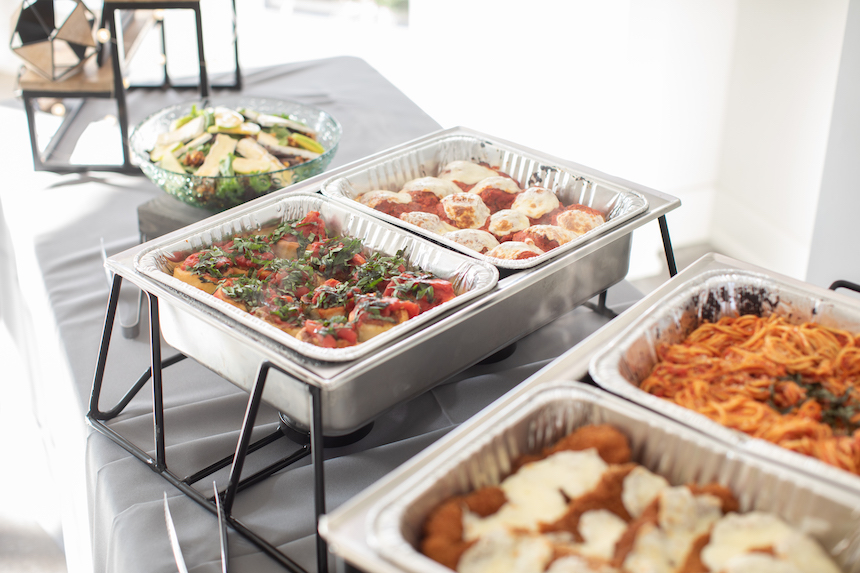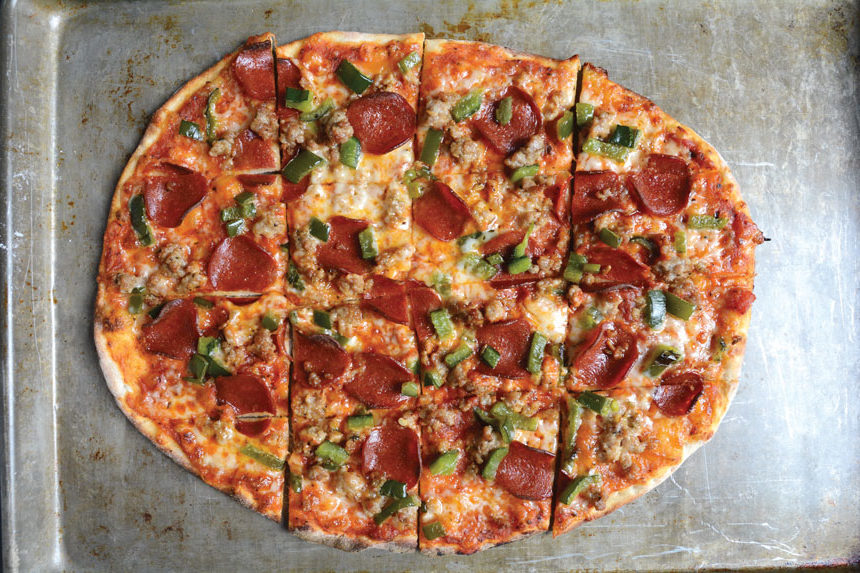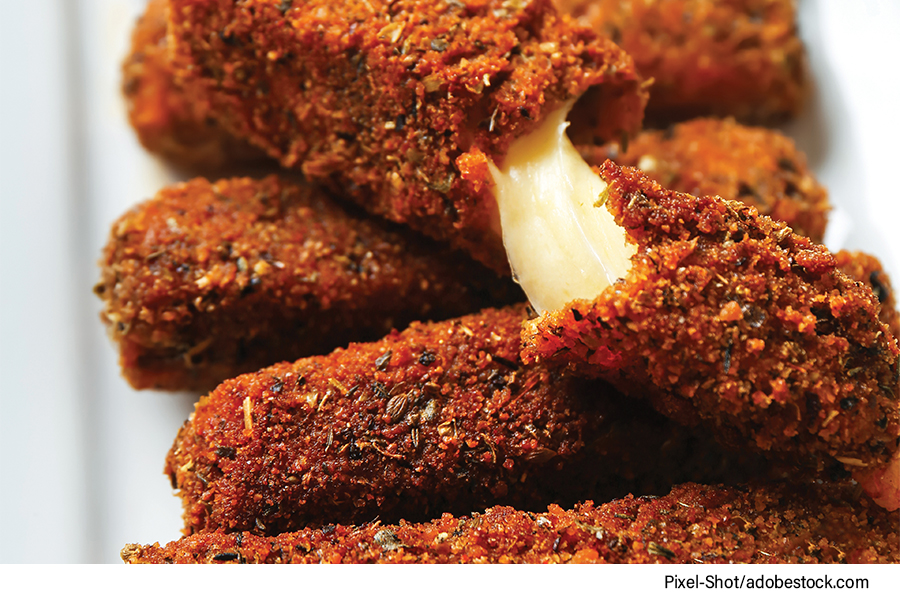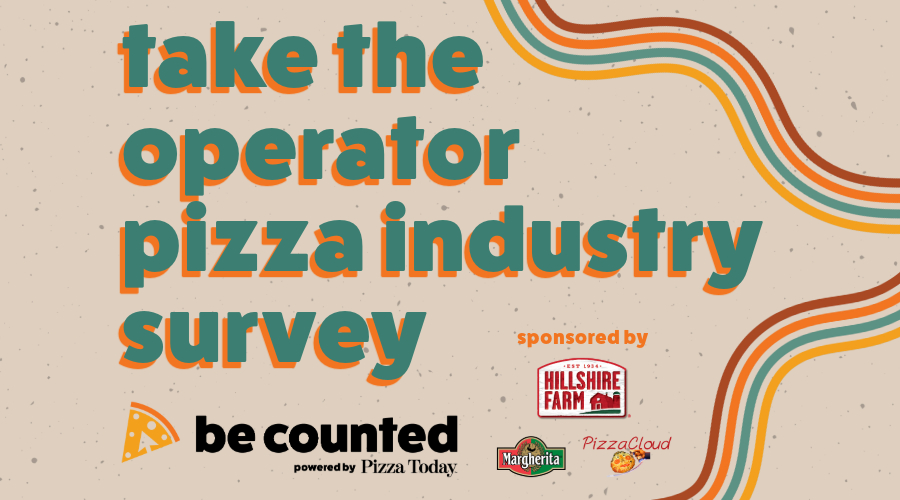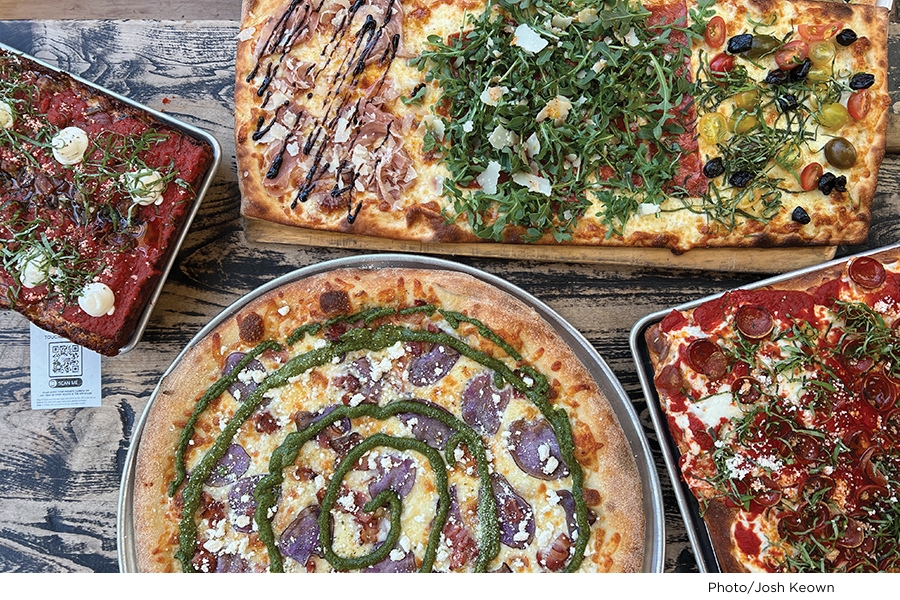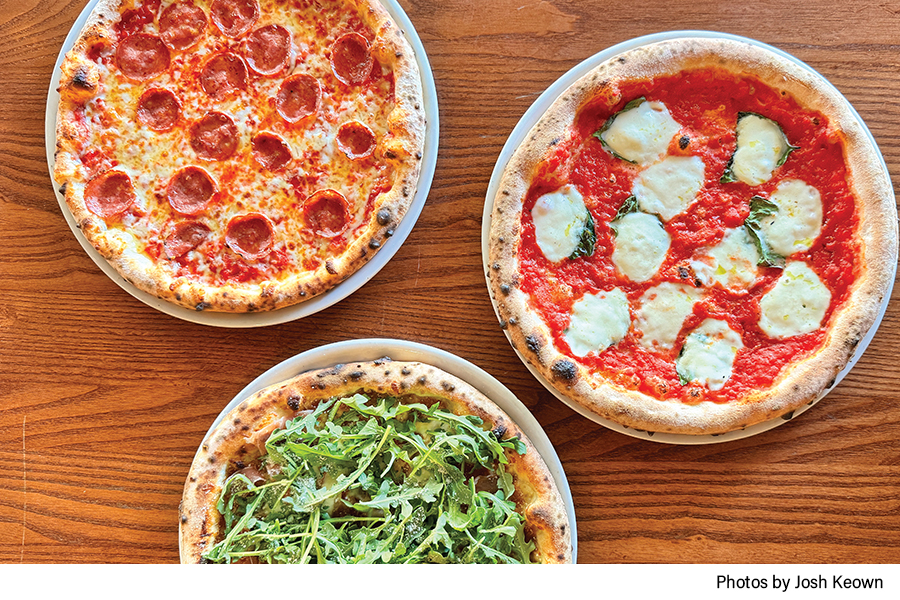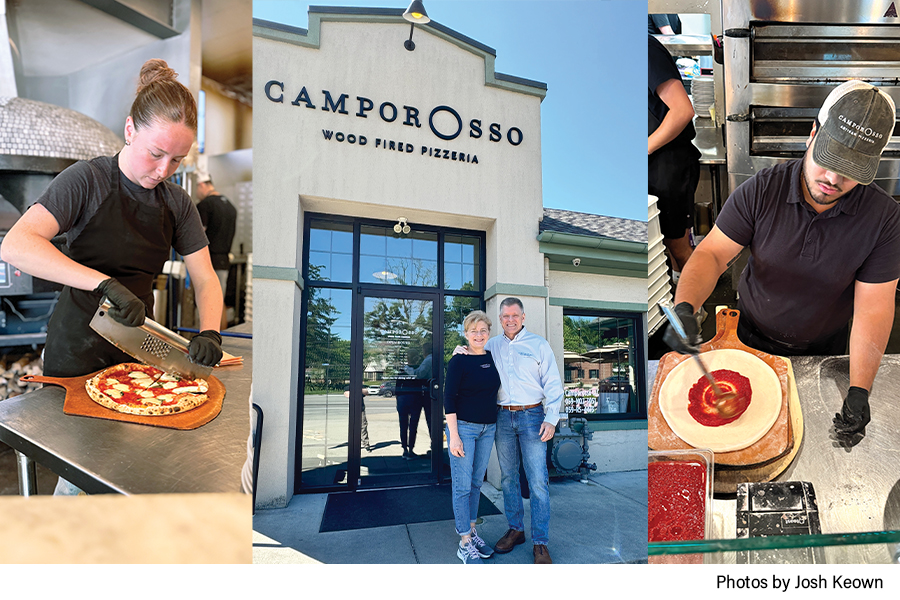
Courtesy of Andolini’s Pizza, Tulsa, OK
Explore Catering Best Practices
“But I don’t know if catering is worth it for us?” said no successful restaurateur ever.
I get it, though, it can be scary to take on catering beyond the occasional 10 pizza order. To know how to handle more catering and corner your market share, you have to respect it. You have to regard it like its own business and run it as such.
What defines catering?
Catering is an ambiguous term. Is it catering when the order is over a certain dollar amount? Or is it when you’re taking it to a significant outside corporate function, is that when it’s catering? Is it for any big party or specific big parties? Can someone be a catering customer if they’re eating inside your restaurant? The answer is yes to all of these.
I define catering as the cream at the top you get when you aggressively advertise your bulk order abilities. Catering is the easy money that takes a lot of planning and dedicated thought to achieve consistently. Excellent catering can turn a break-even restaurant into a highly profitable dynamo. The first thing to ask before engaging with catering is, are you ready to cater? Are you prepared for a 500-person order? Are you prepared for three 500-person orders out of your restaurant in one night while still feeding dine-in customers? That’s the ideal problem, but if you’re not able to do more than five pizzas at a time, you’re not ready for catering and the money it can bring.
Be Prepared
I wanted catering so bad when I first opened Andolini’s. Three months into being open, I got a call at 10 am for seven 20-inch pizzas delivered to a business park 15 minutes away, and it had to be there at 11:30. My crew wasn’t ready, our prep wasn’t set, and I wanted that money so bad that I said yes to the order. We failed, and I was 25 minutes late. I swore never to let that happen again. I knew they wouldn’t order from us anytime soon, so I comped the pizzas and promised to do the order again for free next week to show them we could cater.
Catering will beat you up if you aren’t ready for it and don’t respect it enough to plan accordingly for success. If you want to know if you are prepared to properly cater, perform this exercise. Plan out your biggest event ever. What would you do? How would you execute it? Would you still be able to do in-store dining and regular pick up? What could you do if you had all that off the table? Then think of the failure points that you haven’t accounted for yet. For example, could you deliver 100 pizzas if you had a pizza warmer? Do you own enough pizza bags to pull off something huge? Could you handle an entire wedding if you only had the right staff to hand out the food and work the event?
For issues like these, think like a caterer. They don’t all own their equipment or have daily staff. You can use party/catering rental stores and do these things piecemeal until you’re willing to purchase it all and house it yourself. Pass the equipment charges on to the customer as an equipment fee. Eventually, you’ll know what you need and keep it on-site or in a storage container. As for the rare times when you need 20 silver chafing dishes, you’ll know where to rent them from.
Execution
Catering is all about coordination. It’s about coordinating and communicating the expectations of the day to your kitchen. It’s about knowing event details and day-of on-site contact with the customer.
When you’re given enough time to plan, it mandates you execute well. Not that you perform in an acceptable way, but in an exemplary manner.
I suggest you employ or become an execution manager. You can call it a catering coordinator or whatever you’d like, but someone who owns the task of setting up a game plan (A game plan is a document that details when food will go in the oven, be prepped, leave the site, etc.). This person is tending to everything being done correctly and checked up on several times leading up to the event.
So for that 500-person catering order, do you have enough product ordered earlier in the week? Do you have enough staff coming in to make all the food? Are you making the food with enough time to give it ample screw-up time if one or two pizzas go awry, but not so much time that you send out cold pizzas? Are you taking care of things you could do in advance, like gallons of tea and salads ready in your walk-in, and not trying to make them in your crunch time?
Do you have a delivery person with a reputable, serviceable vehicle prepared to take this order? Does this person represent you well? Do you have all this written down and communicated cleanly and clearly to your staff?
Catering Sales
That’s what an execution manager can do. With that said, a catering sales manager might have nothing to do with execution. Their job might only be to go out and get sales. I believe a catering sales manager, ideally, should have little to do with the execution. They should be credited on how much they can sell instead of worrying about how much work they will need to do later. Let the execution manager deal with that and have them both compensated and incentivized for an increased workload.
If you wait for people to come to you to order pizzas for their holiday party, then you’ll get a few orders. If you systematically go after those businesses in September and plan out their holiday party with you, you’ll no doubt be in a better position. It’s also important to tell these groups that you can do more than make pizza. And you can, you 100 percent can. Do you think the people you buy flour from won’t also sell you potatoes? You can make mashed potatoes. You can make chicken. You can do all of that.
If you invest a little bit of time and ingenuity into making a solid recipe, you’ll be set. Then all you need to do is put it in the same foil pans you use for your catering salad. This change-up is not difficult. It takes an investment of time and little R&D to acquire the ability to do something you don’t currently do on a daily basis.
How to Sell a Pizzeria Caterer
When that same client or potential client says, “Well, why should I go with you, a pizzeria instead of a full-blown caterer?” Your response should be as such. “I make food seven days a week with a staff that handles customers seven days a week. A regular catering company does gigs here and there on the weekends. You can see my prices. They’re set in stone. I’m not looking to see how rich I think you are, or how much you’re willing to spend per plate to decide what I’m going to charge you. I charge a fair price every day of the week. And I don’t need you to order for me for my business to survive. I already have a thriving business, but I make food for a living. And if you’d like to have a person who makes food seven days a week professionally taking care of your holiday party, that’s me.”
Taking Existing Catering Sales up a Notch
If you are already catering, and you’re getting pretty good at it, then dress for the job you want, not the job you have. Which means act the part. Act like those professional full-time catering companies. Get a catering logo, get a catering Instagram. Make unique special items that people are going to want to impress others with at their event. You will still get the kitschy wedding that wants pizza, but you could be getting the big dollar wedding that wants chicken or fish. And you can do it in your kitchen. You are a professional, career-oriented restaurateur. So let your catering match that same mindset.
Keeping Great Clients
To the repeat customers, give them a follow-up call and or text. Additionally, there’s nothing wrong with providing a pharmaceutical rep a gift card every time they order from you. It will keep them coming back to you, and it’ll make sure that they feel special when they do. If you have a massive order or wedding with a client, always send a thank you card afterward. Show that you are appreciative of the business, and they will appreciate your kindness as well. Call business clients up every few weeks and say, “What other things can I help you with?” As opposed to “Do you have any orders this week for me?” Do it from the mindset of how can we use my restaurant to make your life easier.
Always sell from the perspective of helping the client feed their friends and family impressively, so the ones who eat the food thank them for choosing your restaurant. Have the mindset that you have a restaurant that can help feed one of the meals of their day, potentially in a way that it’s the highlight of their day. Catering is easy money. Catering is doing more with what you already have. You can do more and make more money with your existing kitchen and existing workforce to create newly existing sales.
Mike Bausch is the owner of Andolini’s Pizzeria in Tulsa, Oklahoma. Instagram: @mikeybausch.
